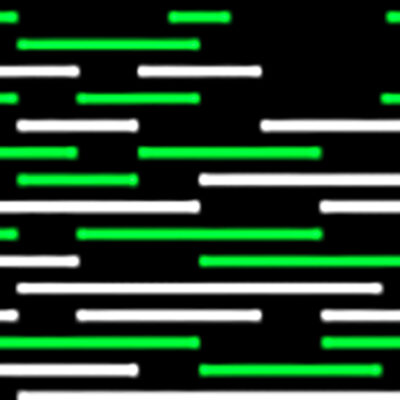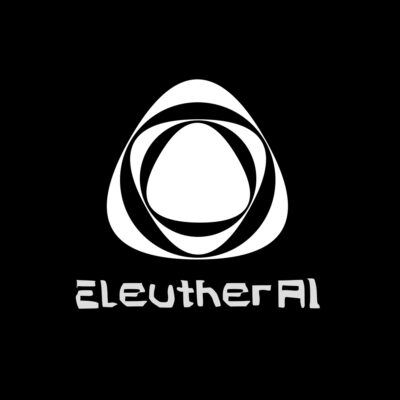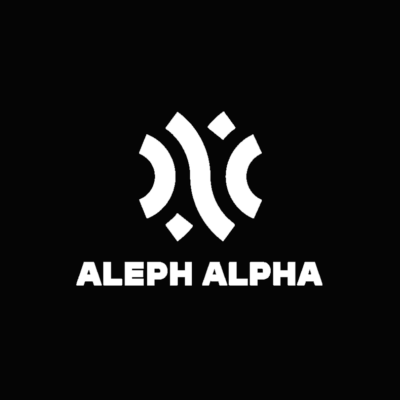Compare Models
-
OpenAI
GPT-3.5-turbo 4k
$0.002GPT-3.5-turbo is an upgraded version of the GPT-3 model. It was designed to provide better performance and is well-known as the model that, by default, powers ChatGPT (however, paying customer who subscribe to ChatGPT Plus can change the model to GPT-4 before you start a chat).GPT-3.5-turbo is optimized for conversational formats and is superior to GPT-3 models, and the performance of GPT-3.5-turbo is on par with Instruct Davinci-003 (however is also ten times cheaper and has been seen to be three times faster). GPT-3.5-turbo was trained on a massive corpus of text data, including books, articles, and web pages from across the internet and is used for tasks like content and code generation, question answering, translation, and more. In some cases, GPT-3.5-turbo results can sometimes be too “chatty” or “creative”. Access is available through a request to OpenAI’s API or through the web application (try for free). -
OpenAI
GPT-4 32K context
$0.12GPT-4 is OpenAI’s new design that incorporates additional improvements and advancements, including being multimodal so it can take both text and image inputs. With broad general knowledge and domain expertise, GPT-4 can follow complex instructions in natural language and solve difficult problems with accuracy. GPT-4 has a more diverse range of training data, incorporating additional languages and sources beyond just English. This means that the model will be able to process and generate text in multiple languages and better understand the nuances and subtleties of different languages and dialects. This is the extended 32k token context-length model, which is separate to the 8k model (and is more expensive).
GPT-4 API access is now available.
Note: At the time of writing, ChatGPT Plus subscribers can access Chat GPT-4 by logging into the web application.
-
OpenAI
GPT-4 8K context
$0.06GPT-4 is OpenAI’s new design that incorporates additional improvements and advancements, including being multimodal so it can take both text and image inputs. With broad general knowledge and domain expertise, GPT-4 can follow complex instructions in natural language and solve difficult problems with accuracy. GPT-4 has a more diverse range of training data, incorporating additional languages and sources beyond just English. This means that the model will be able to process and generate text in multiple languages and better understand the nuances and subtleties of different languages and dialects. There are a few different GPT-4 models to choose from. The standard GPT-4 model offers 8k tokens for the context. GPT-4 API access is now available.
Note: For the ChatGPT web application, ChatGPT is powered by GPT-3.5 turbo by default. However, if you are a paying customer and subscribe to ChatGPT Plus, you can change the model to GPT-4 before you start a chat.
-
EleutherAI
GPT-J
FREEEleutherAI is a leading non-profit research institute focused on large-scale artificial intelligence research. EleutherAI has trained and released several LLMs and the codebases used to train them. GPT-J can be used for code generation, making a chat bot, story writing, language translation and searching. GPT-J learns an inner representation of the English language that can be used to extract features useful for downstream tasks. The model is best at what it was pretrained for, which is generating text from a prompt. EleutherAI has a web page where you can test to see how the GPT-J works, or you can run GPT-J on google colab, or use the Hugging Face Transformers library. -
EleutherAI
GPT-NeoX-20B
FREEEleutherAI has trained and released several LLMs and the codebases used to train them. EleutherAI is a leading non-profit research institute focused on large-scale artificial intelligence research. GPT-NeoX-20B is a 20 billion parameter autoregressive language model trained on the Pile using the GPT-NeoX library. Its architecture intentionally resembles that of GPT-3, and is almost identical to that of GPT-J- 6B. Its training dataset contains a multitude of English-language texts, reflecting the general-purpose nature of this model. It is a transformer-based language model and is English-language only, and thus cannot be used for translation or generating text in other languages. It is freely and openly available to the public through a permissive license. -
Aleph Alpha
Luminous-base
$0.0055Aleph Alpha have the Luminous large language model. Luminous models vary in size, price and parameters. Luminous-base speaks and writes 5 languages: English, French, German, Italian and Spanish and the model can perform information extraction, language simplification and has multi-capable image description capability. Aleph Alpha is targeting “critical enterprises” — organizations like law firms, healthcare providers and banks, which rely heavily on trustable, accurate information. You can try Aleph Alpha models for free. Go to the Jumpstart page on their site and click through the examples on Classification and Labelling, Generation, Information Extraction, Translation & Conversion and Multimodal. Aleph Alpha are based in Europe, allowing customers with sensitive data to process their information in compliance with European regulations for data protection and security on a sovereign, European computing infrastructure. -
Aleph Alpha
Luminous-extended
$0.0082Aleph Alpha luminous-extended is the second largest model which is faster and cheaper than Luminous-supreme. the model can perform information extraction, language simplification and has multi-capable image description capability. You can try Aleph Alpha models with predefined examples for free. Go to at the Jumpstart page on their site and click through the examples on Classification and Labelling, Generation, Information Extraction, Translation and Conversion and Multimodal. Aleph Alpha are based in Europe, which allows customers with sensitive data to process their information in compliance with European regulations for data protection and security on a sovereign, European computing infrastructure. -
Aleph Alpha
Luminous-supreme
$0.0319Supreme is the largest model but the most expensive Aleph Alpha Luminous model. Supreme can do all the tasks of the other smaller models (it speaks and writes 5 languages, English, French, German, Italian and Spanish and can undertake Information extraction, language simplification, semantically compare texts, summarize documents, perform Q&A tasks and more) and is well suited for creative writing. You can try out the Aleph Alpha models for free. Go to the Jumpstart page on their site and click through the examples on Classification & Labelling, Generation, Information Extraction, Translation & Conversion and Multimodal. -
Aleph Alpha
Luminous-supreme-control
$0.0398Supreme-control is its own model, although it is based on Luminous-supreme and is optimized on a certain set of tasks. The models differ in complexity and ability but this model excels when it can be optimized for question and answering and Natural Language Inference.You can try out the combination of the Aleph Alpha models with predefined examples for free. Go to at the Jumpstart page on their site and click through the examples on Classification & Labelling, Generation, Information Extraction, Translation & Conversion and Multimodal. -
RedPajama
RedPajama-INCITE-7B-Instruct
FREEThe RedPajama project aims to create a set of leading open source models. RedPajama-INCITE-7B-Instruct was developed by Together and leaders from the open source AI community. RedPajama-INCITE-7B-Instruct model represents the top-performing open source entry on the HELM benchmarks, surpassing other cutting-edge open models like LLaMA-7B, Falcon-7B, and MPT-7B. The instruct-tuned model is designed for versatility and shines when tasked with few-shot performance.The Instruct, Chat, Base Model, and ten interim checkpoints are now available on HuggingFace, and all the RedPajama LLMs come with commercial licenses under Apache 2.0.Play with the RedPajama chat model version here – https://lnkd.in/g3npSEbg -
Amazon
SageMaker
FREEAmazon SageMaker enables developers to create, train, and deploy machine-learning (ML) models in the cloud. SageMaker also enables developers to deploy ML models on embedded systems and edge-devices. Amazon SageMaker JumpStart helps you quickly and easily get started with machine learning. The solutions are fully customizable and supports one-click deployment and fine-tuning of more than 150 popular open source models such as natural language processing, object detection, and image classification models that can help with extracting and analyzing data, fraud detection, churn prediction and personalized recommendations.The Hugging Face LLM Inference DLCs on Amazon SageMaker, allows support the following models: BLOOM / BLOOMZ, MT0-XXL, Galactica, SantaCoder, GPT-Neox 20B (joi, pythia, lotus, rosey, chip, RedPajama, open assistant, FLAN-T5-XXL (T5-11B), Llama (vicuna, alpaca, koala), Starcoder / SantaCoder, and Falcon 7B / Falcon 40B. Hugging Face’s LLM DLC is a new purpose-built Inference Container to easily deploy LLMs in a secure and managed environment. -
OpenAI
text-davinci-003
$0.02Text-davinci-003 is recognized as GPT 3.5 and is a variant of the GPT-3 model. While both Davinci and text-davinci-003 are powerful models, they differ in a few key ways. Text-davinci-003 is a newer and more capable model explicitly designed for instruction-following tasks. Text-davinci-003 was trained on a more recent dataset containing data up to June 2021. It can do any language task with better quality, longer output, and consistent instruction-following than the Curie, Babbage, or Ada models. Text-davinci-003 supports a longer context window (max prompt plus completion length) than Davinci.For those requesting the OpenAI’s API, GPT-3.5-turbo may be a better choice for tasks that require high accuracy in math or zero-shot classification and sentiment analysis than text-davinci-003. To note, GPT-3.5-turbo performs at a similar capability to text-davinci-003 but at 10 percent the price per token. OpenAI recommends GPT-3.5-turbo for most use cases.







